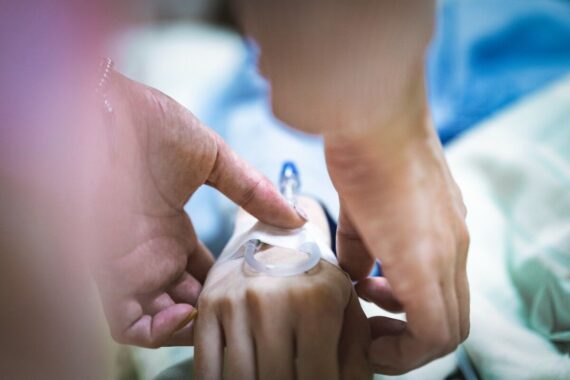Doctors report 70 cases of avoidable harm caused by PAs

GPs and other doctors have reported 70 instances of avoidable patient harm and near misses ’caused by PAs’, the House of Lords heard this week.
In a debate on legislation for regulating physician and anaesthesia associates, Baroness Brinton told members that these cases, across both GP practices and hospitals, include missed diagnoses leading to terminal diseases, sepsis, and heart attacks.
The baroness, who is the former president of the Liberal Democrats, also said missed cancer diagnoses has ’emerged as a significant issue’ in primary care.
In the Lords debate, she argued that the ‘associate’ title is ‘confusing’ for patients and ‘perhaps implies that they have the same level of expertise as doctors’.
‘Like other noble Lords, I have been inundated with letters from doctors and patients saying that they have been misled—not in the deliberate sense, but that PAs have not been correcting the record when someone has called them a doctor,’ she told the House.
The debate touched on the case of Emily Chesterton who died in 2022 after seeing a PA at her GP practice but who had not been aware that those appointments were not with a doctor.
Lady Brinton went on to discuss the potential patient harm caused by physician associates and the time it takes doctors to supervise these roles.
She said: ‘We have heard that, across acute trusts and GP surgeries, doctors have reported 70 instances of avoidable patient harm and near misses caused by PAs.
‘That includes fatalities, missed diagnoses resulting in terminal diseases, missed DVTs, sepsis, heart attacks
and haemorrhages. Missed cancer diagnoses in primary care has therefore emerged as a significant issue.’
Pulse understands this data comes from a survey of doctors conducted by the Doctors’ Association UK (DAUK).
The Baroness told the health minister Lord Markham that her ‘real concern’ is ensuring current clinical practice within the ‘extremely pressed and busy NHS’ is safe, saying that GMC regulation of PAs and AAs ‘will not in itself do that’.
‘One of the good things about regulation for PAs and AAs is that they will come under the duty of candour. However, in all the cases that we have been told about where things have gone wrong, there is no evidence that there were reports to the CQC by the supervising doctors about things going wrong,’ she added.
The legislation was approved by the House of Lords, despite concerns raised by Baroness Brinton and other peers, including a ‘fatal’ amendment by Baroness Bennett which would have killed the draft order.
The BMA and the Doctors’ Association UK had backed he amendment, having also expressed serious concerns about PAs being regulated by the GMC.
According to the BMA, this move will blur the lines between doctors and PAs and create confusion for patients.
A BMA survey last year found that almost nine in ten doctors think the way PAs and AAs currently work in the NHS poses a risk to patient safety.
One GP who responded to the the BMA survey said that a PA under their supervision was ‘without doubt the most worrying person’ they have ever had to supervised in over 30 years, due to a lack of basic knowledge and diagnosis ability.
In November, the union’s GP Committee for England called for an immediate pause on all recruitment of PAs, with the chair saying blurred lines between doctors and PAs are ‘at best confusing’ and ‘at worst’ a threat to patient safety.
Pulse October survey
Take our July 2025 survey to potentially win £1.000 worth of tokens

Related Articles
READERS' COMMENTS [7]
Please note, only GPs are permitted to add comments to articles











GMC registration has nothing to do with introduction of a ‘duty of candour’ to PAs.
‘Duty of Candour’ already includes any PA supervised by a registered Doctor OR working within the NHS, to which ‘Duty of Candour’ also applies as an organisation.
ONCE HAD A PATIENT WHOSE HISTORY AND EXAMINATION POINTED TO ”SPRAINED MUSCLE”————-DOEPPLER’S RESULT—-D.VT.
Change happens, workforces remodel, employers exlpoit, workers revolt, life goes on as it always has. The issue here is that poor PAs are poorly trained and left to their own devices because we are too busy to support them. Vested intrests or not we should either play ball or not step on the pitch. You, decide!
I’m sure somebody with an axe to grind could easily highlight 70 cases where GP “errors” had led to patient harm.
Our Defence Union publications are full of these cautionary tales, some of which leave an icy guilty “there but for the grace of God go I” shiver up the spine.
We’re chucking stones in a greenhouse here, folks.
If I complied rigorously with Duty of Candour, and exercised my right to Speak Up when needed, I’d have no time left to see any patients. I see patients harmed every single day not by dedicated health professionals, but by Government policy. I wonder if the CQC would like to do a 180 and address the real and systemic cause of most patient harm in the UK.
Totally agree Davids B & M. Problem is that HMG response will simply be “we have invested £££ million/billion in primary care”
No doctor should be forced to supervise these people.
They are clearly an obfuscation only.
That the usual lickspittles and gong chasers support them isn’t a surprise.